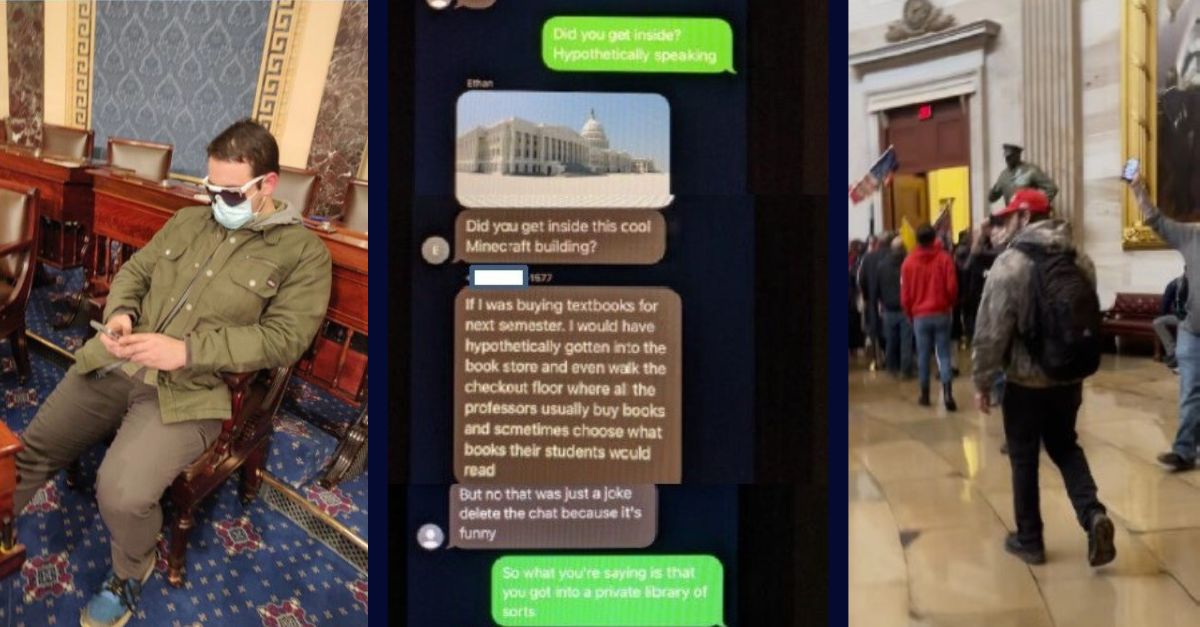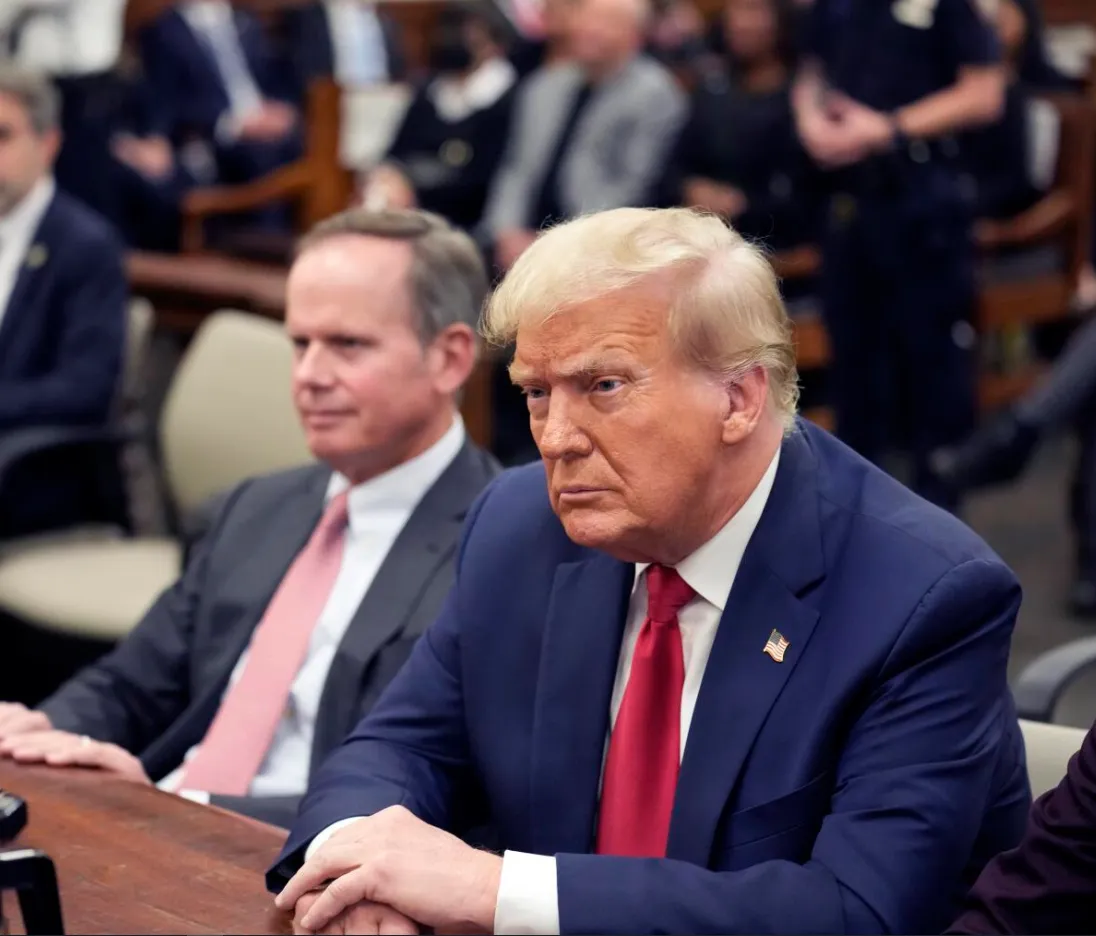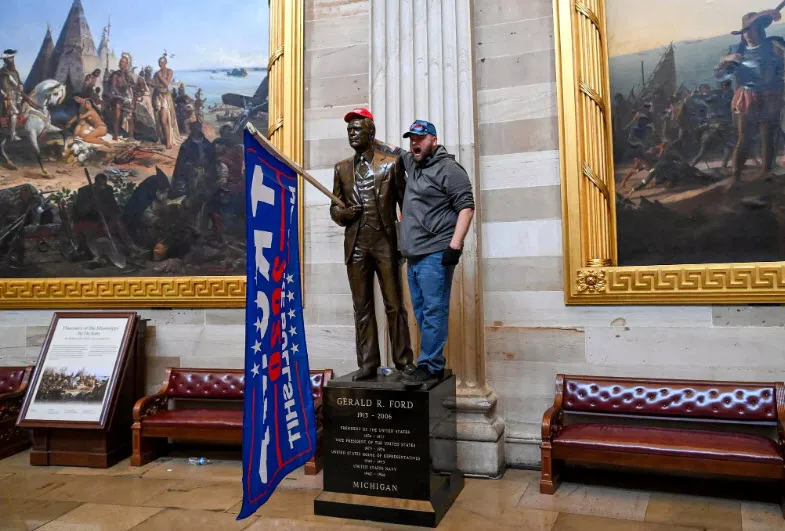
The election of Donald Trump on Tuesday has already sent ripples through Washington, DC. In particular, the ramifications are being felt by defendants who were charged in connection with the January 6, 2021, Capitol riot. There is growing speculation that some of these individuals could be pardoned by the incoming president, who has made multiple promises on this issue.
One of the defendants has moved quickly in response to Trump’s victory. This individual has even used the news as a justification to try to delay a scheduled court hearing, believing he will soon receive clemency.
“Throughout his campaign, President-elect Trump made multiple clemency promises to the January 6 defendants, particularly to those who were nonviolent participants,” wrote the legal team representing Christopher Carnell in a court document submitted on Wednesday. According to the lawyers, Carnell is optimistic about his future now that Trump is set to assume office. “Mr. Carnell, who was an 18-year-old nonviolent entrant into the Capitol on January 6, is expecting to be relieved of the criminal prosecution that he is currently facing when the new administration takes office,” they stated.
Carnell had been found guilty on all seven charges brought against him. These charges included disorderly conduct in a restricted building, among other offenses. Despite his legal struggles, Carnell's legal team appears hopeful that Trump’s re-election will change his circumstances significantly.
The statement submitted by Carnell's lawyers suggested that the young defendant is currently “awaiting further information from the Office of the President-elect regarding the timing and expected scope of clemency actions relevant to his case.” It appears that they are confident enough in Trump’s previous commitments that they have already started making arguments in court based on a possible pardon.

However, this move did not sit well with District Judge Beryl Howell. On Wednesday, Judge Howell swiftly rejected the request to delay the upcoming hearing. In a prompt order, she indicated that the hearing would remain scheduled for Friday, as initially planned.
Trump has, indeed, previously expressed his intention to pardon January 6 participants. In July, Trump remarked that if the individuals involved are found to be innocent, he “would pardon them.” These words have evidently given defendants like Carnell hope that they could soon be absolved of their charges.
More than 1,500 individuals have been charged with crimes related to the events of January 6. Of these, over 1,000 have already been convicted. The riot, which saw individuals storming the Capitol building, led to a range of charges for those involved, from violent assaults to minor offenses such as trespassing.
The prospect of presidential clemency has raised several questions about the future of these cases. Trump’s election campaign prominently featured discussions around the Capitol riot and the way its participants were treated by the legal system. For many, Trump’s return to power was seen as a potential pathway to leniency.
Carnell, one of the youngest of the convicted defendants, was an 18-year-old when he entered the Capitol building that day. His legal representatives are clearly banking on the fact that he was classified as a nonviolent participant. They are hopeful that Trump’s public promises might soon translate into formal pardons. The idea of a presidential pardon has introduced a new layer of uncertainty in the Capitol riot cases, which have already been closely watched by the public and legal experts alike.

Judge Howell’s decision to reject the request for postponing the hearing suggests that, for now, the legal system will continue to process these cases as planned. There has been no official confirmation from Trump or his office about the specifics of any forthcoming clemency actions. For the moment, any such claims appear to be speculative, relying largely on the broad, albeit consistent, statements Trump made during his campaign.
The promise of a pardon, however, seems to have had a powerful effect on defendants and their legal teams. The anticipation surrounding possible clemency is likely to influence how many of these cases progress in the coming months. With Trump taking office, it remains to be seen how swiftly and decisively he will act on these promises, and whether his actions will align with the expectations that his supporters—and indeed, the defendants themselves—have set.
Observers of the legal system have pointed out that any use of presidential pardoning powers in these cases would be both legally and politically significant. It could signal a dramatic shift in the way Trump intends to handle the aftermath of January 6, as well as reinforce his connection to those who see him as an advocate against what they consider an unjust system.
Meanwhile, the courts are carrying on with their duties, adhering to existing schedules and considering the facts of each individual case. For people like Christopher Carnell, the next few weeks could prove critical, as the legal system awaits the change in administration and the possible policy shifts that could follow. Whether or not Trump’s words will transform into clemency remains to be seen, but the defendants involved are certainly holding onto that hope.

-1728018066-q80.webp)

